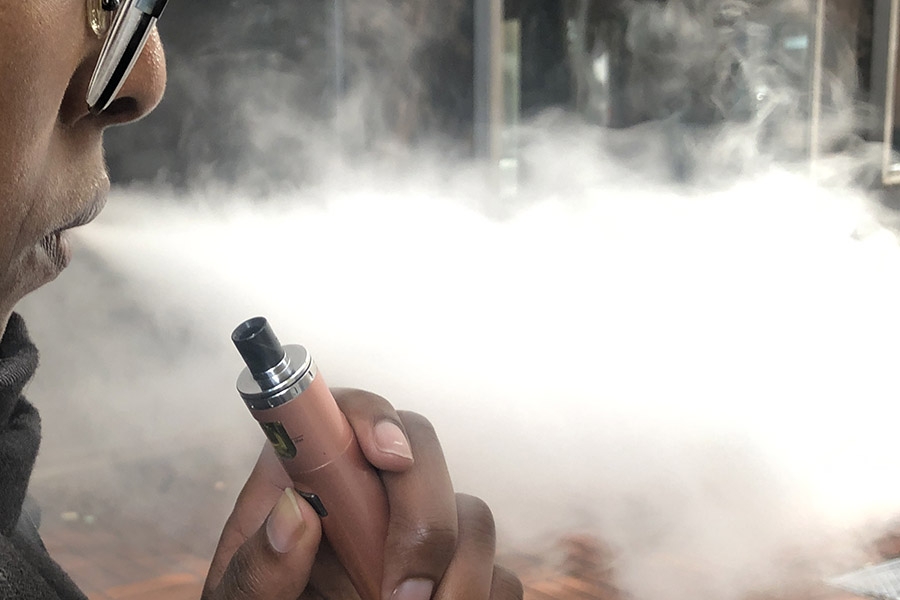Producers criticize Oregon’s ban on flavored vape products for targeting the wrong market.
Governor Kate Brown took executive action to ban the sale of flavored vaping products. The ban comes amidst a rash of vaping-related illnesses and at least 26 deaths, two in Oregon.
The ban affects all flavored vaping cartridges, but not cartridges derived solely from cannabis terpenes, the compound which gives the products their flavor. The crackdown is less restrictive than the complete ban on vape products enacted in Massachusetts.
“By keeping potentially unsafe products off of store shelves and out of the hands of Oregon’s children and youth, we prevent exposing more people to potentially dangerous chemical compounds.” Governor Brown said when she announced the ban.
The move has already been praised by the Oregon Health Authority, which encouraged consumers to be even more cautious in a statement about the decision:
“The Oregon Health Authority urges Oregonians to stop using all vaping products until federal and state officials have determined the cause of serious lung injuries and deaths linked to the use of both cannabis and nicotine vaping products.”
The exact cause of the deaths is unknown, but a study from the Mayo Clinic found “toxic chemical fumes” to likely be at play.
One potential suspect is vitamin E, which is often cut with vape liquid to increase volume. Vitamin E acetate has an orange color similar to vape fluid, which makes it popular among producers looking to lower their costs.
Another theory is that aluminum or some other heavy metal is burning off inside the vape pen itself, and is subsequently inhaled.
The problem is that legally sanctioned products containing THC (the psychoactive constituent in cannabis) are not cut with large amounts of vitamin E, nor are any industry-legal e-cigarettes capable of burning heavy metals into the user’s lungs.
Vitamin E is cut with vape products on the illicit market to sell in higher volumes, and cheap, unregulated vape pens do not face safety inspection.
“A big thing that has been connected to the deaths nationally has been illicit products from non-legal states,” says Joel Thompson, sales director at cannabis distribution company Buddies. “Black market products are cut with additives like vitamin E to make them go further. It’s the oldest trick in the book.”
Thompson says illicit products are more likely to be behind the string of vaping deaths, since legal vape products undergo testing. Still, he says that flavored products should probably face more regulations.
“We’ve been asking for more regulation,” he says. “It’s unfortunate that regulation has to be a response to tragedy and confusion.”
Another point of contention lies in the fact that the ban targets all vape products that contain additives, including all-natural flavoring agents such as citrus peel.
“We have probably $50,000 of capital tied in inventory for products we won’t be able to sell for at least six months,“ says Gabe Cross, CEO of cannabis grower and manufacturer Odyssey Distribution.
“We understand that you have to draw the line somewhere, but it doesn’t really make sense from a scientific or health perspective to ban cartridges with botanical terpenes and not cannabis terpenes since they are chemically identical.”
The problem, though, remains the illicit market. As of the writing of this article, more than two dozen consumers have died of vaping-related illnesses, despite bans already going into effect nationwide.
“This ban isn’t going to affect the black market whatsoever. It’s a ban on top of a ban,” says Rick Brown, president of multi-state cannabis manufacturer Orchid Ventures. “None of the deaths I’ve heard about so far have come from legal, regulated manufacturers. I think this sends the message that if you do things legally you are going to get punished. If you do things the wrong way you’ll be emboldened to take advantage of the situation.”
Brown says the ban sends the wrong message, and has the potential to make things worse.
“I didn’t hear [Governor Brown] talk about increasing the pressure on the illicit market in her speech. Clearly they have the money to do so from taxing the legal side of the business,” he says. “Our company will survive, but a lot of good, hardworking people are going to go out of business because of this ban.”
To subscribe to Oregon Business, click here.







